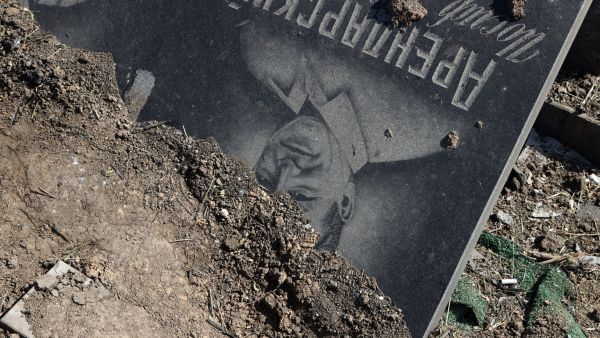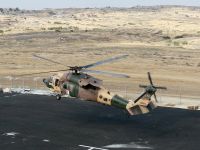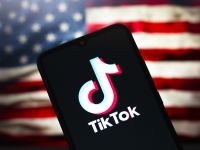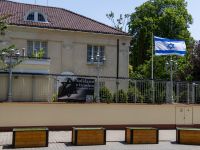By Dr. Rene Tebel
At the annual meeting of the Association of Defence Companies of the Sverdlov Region on the 22nd of April, Major General Rustam Minnekaev, deputy commander of the Central Military District troops, explained the current goal of the Russian military operation. According to Minnekaev, Russian forces are aiming for the complete capture of Dombass and southern Ukraine in order to create a land corridor to Crimea, which was annexed by Russia in 2014.
According to Minnekaev, this would also allow Russia to dispose of the »"[...]vital facilities of the Ukrainian [armed forces], the Black Sea ports through which agricultural and metallurgical products are supplied to countries [of the world] [...]"«, he is quoted as saying in Ukraina. Moreover, control over southern Ukraine could also allow access to Transnistria, »“where there is also evidence of oppression of the Russian-speaking population“«, as Minnekaev continues. For a careful observer of the Russian military operation, this statement hardly comes as a surprise. It can easily be described as Vladimir Putin's minimum goal and has already been indicated in recent weeks.
The creation of a land bridge to Crimea would secure the peninsula, which was annexed in 2014, territorially and also guarantee the water supply, which is provided by a canal near Kherson from the Dnieper to Crimea. It could also revive the economic ties that have traditionally existed between the southern Ukrainian territories and Russia. Moscow has two main options to realise the appropriation of the territories: Russia can hold an independence referendum and declare independent people's republics or gradually annex the territories into Russia.
The proclamation of people's republics
For weeks, Ukrainian intelligence has reported activities related to Moscow's plan to hold an independence referendum in Kherson oblast to establish the Kherson People's Republic (KhVR). Ukraine does not expect a free election in any case and warned residents not to give personal information to the Russian military administration. Personal data in passports and questionnaires used in the distribution of aid could be used to fill in ballot papers at the election, they worry.
Ukrainian sources cite the 1st of May as the date for the independence referendum. This is to be followed by a census by the 10th of May, which is to be followed by the conscription of all males between the ages of 16 and 65 from the Zaporizhzhya and Kherson regions into the Russian military.
A printing house in Khersonand another in Nova Kakhova are said to have already printed the ballot papers, posters and leaflets, Ukrainian sources said.
However, Kirill Stremousov, the deputy head of Russia's military-civilian administration, contradicted the Ukrainian account on Russian television on Thursday: »"There was an attempt to gather a large rally in the city of Kherson against the so-called referendum, which was invented by the Ukrainian authorities. Although in our military-civil administration we did not even discuss issues regarding the referendum, just as we did not discuss the creation of the Kherson People's Republic"«, he is quoted as saying by RIA Novosti. A local Ukrainian journalist also told The New Voice of Ukraine as recently as Friday that he knew nothing about a referendum and did not think it would be useful.
De facto annexation of Southern Ukraine to Russia
The second option is a gradual annexation of southern Ukraine into Russia. Apart from the so-called People's Republics of Luhansk and Donetsk, which have their own symbols, the white-red-blue flag of the Russian Federation already flies on official buildings in cities like Melitopol, Endehodar, Berdyansk or Kherson. And even historical symbols like the Soviet flag were hoisted on a pole in Kherson only last week.
Western media report from Henichesk and Nova Kakhovka that statues of Lenin have been erected there again. While for some Russian-speaking residents the red flag with hammer and sickle is a nostalgic reminder and for Russia the symbolic equation of Ukraine with Hitler's Germany, for other residents it is a reminder of the return of the dark times of communist dictatorship.
Further evidence of the »de-Ukrainise«, as India Today aptly described it in an article on the 17th of April, is the establishment of a Russian civil and military administration. It is accompanied by the appointment of new mayors and the removal, intimidation and even kidnapping of unwilling incumbents. The most high-profile case so far is Ivan Fedorov, the now-released mayor of Melitopol, who was led out of the town hall on the 11th of March by a group of Russian soldiers, as recorded by a surveillance camera.
Moreover, in Kherson, for example, Ukrainian television and independent media have disappeared and been replaced by Russian programmes. Russian patrols and identity checks are now part of everyday life, as described by The New Voice of Ukraine. Russian security forces are also said to intimidate and arrest demonstrators. Rumours also speak of torture, according to The Voice of Ukraine and the British The Guardian.
In exchange, the Russian language is said to be able to be used again without restrictions. Ukraine in particular had passed an ominous language law in 2019 that, if applied for a longer period of time, would have resulted in severely restricting the use of the Russian language even in Russian-speaking areas. And finally, the introduction of the Russian rouble is imminent.
From the 1st of May, the Kherson region is to »"enter the rouble zone"« with a transitional period of up to four months, as Kirill Stremousov announced on the TV channel Russia 24, according to Pravda. In both variants, one thing is certain: the struggle for the Russian-speaking areas in Ukraine will hardly end after the 9th of May, but at best intensify. For even if Vladimir Putin were to present the military land gains as a victory, it must not be forgotten that they would also have to be recognised by Ukraine.
In the current situation, this is just as unrealistic as the possibility of a Ukrainian-Russian peace settlement, because Russia's invasion of Ukraine now serves the West too much as a pretext to eliminate Russia as a geopolitical power. This gives little hope for a sustainable compromise and an end to the senseless deaths and suffering experienced by many families on both sides of the border. And also that of the Russian-speaking inhabitants of southern Ukraine, who want to preserve their language and culture but do not necessarily aspire to a life in Putin's Russia.
The views expressed in this article do not necessarily reflect those of Al Bawaba News.







